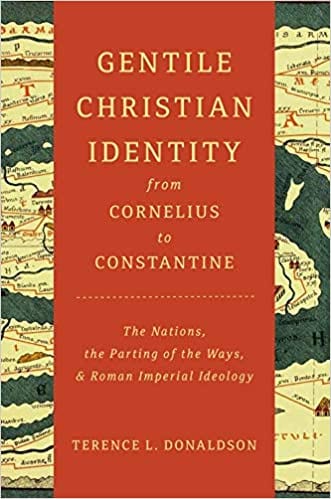Q. Let’s talk methodology for a moment. Obviously, how one arranges the chronology of sources you use affects the trajectory of change or difference you find in the way key terms like ethne are used. Let’s take one example. Suppose the earlier work of Stephen Wilson on the Pastorals is correct and they seem to have been written by a co-worker of Paul, namely Luke. There are some 42 words or phrases in the Pastorals found nowhere else in the NT except in Luke-Acts. This seems significant. Would it change your evaluation of the use of the term ethne in the Pastorals and its ‘universalism’ when the discussion is salvation if they those documents were written by a contemporary of Paul, and perhaps even as a co-worker while Paul was still alive? I ask this because in fact, of those persons who have actually written proper commentaries on the Pastorals there are as many who think those letters are not, strictly speaking, pseudonymous as those who do. What if the hands are the hands of Luke writing these final missives, but the voice is the voice of Paul late in life?
A. You’re right that chronology is an important part of what I’m doing in this book. I’m interested in tracing a process of development, and the final two chapters are organized according to three stages in this process. With respect to the Christian sources, however, the more significant criterion has to do with the apparent ethnic orientation of the author—or the ethnic identity of the implied author, to use a term from narrative criticism. In chapter 4, I deal with ethnē as an identity ascribed to gentile Christ-believers by Jewish believers. In chapters 6 and 7, I deal with the gentile side of the process—what gentile believers did with this ascribed identity. So with respect to methodology, the question of sources has more to do with the appropriate chapter than with the appropriate time period.
With respect to the Pastorals, I have some sympathy for the kind of argument that Steve Wilson developed in his Luke and the Pastorals. (Steve was a good friend and I continue to lament his sudden death a year ago.) More generally, I’m prepared to think that the differences between 2 Timothy and the other two letters are substantial enough to support the hypothesis that it was written by a co-worker who was present with Paul in the circumstances reflected in the letter. For the purposes of this project, though, the primary question has to do with the apparent ethnic orientation of the author. In the case of some other cases of disputed authorship—Colossians and Ephesians, 1 Peter, etc.—the apparent authors clearly identify themselves as Jewish and their readers as gentile (thus, I deal with them in chapter 4). With the Pastorals, however, in addition to the other well-known aspects of style, vocabulary, etc., I don’t see any convincing evidence that the “voice” we hear is that of a Jewish Christ-believer (thus, chapter 6).













